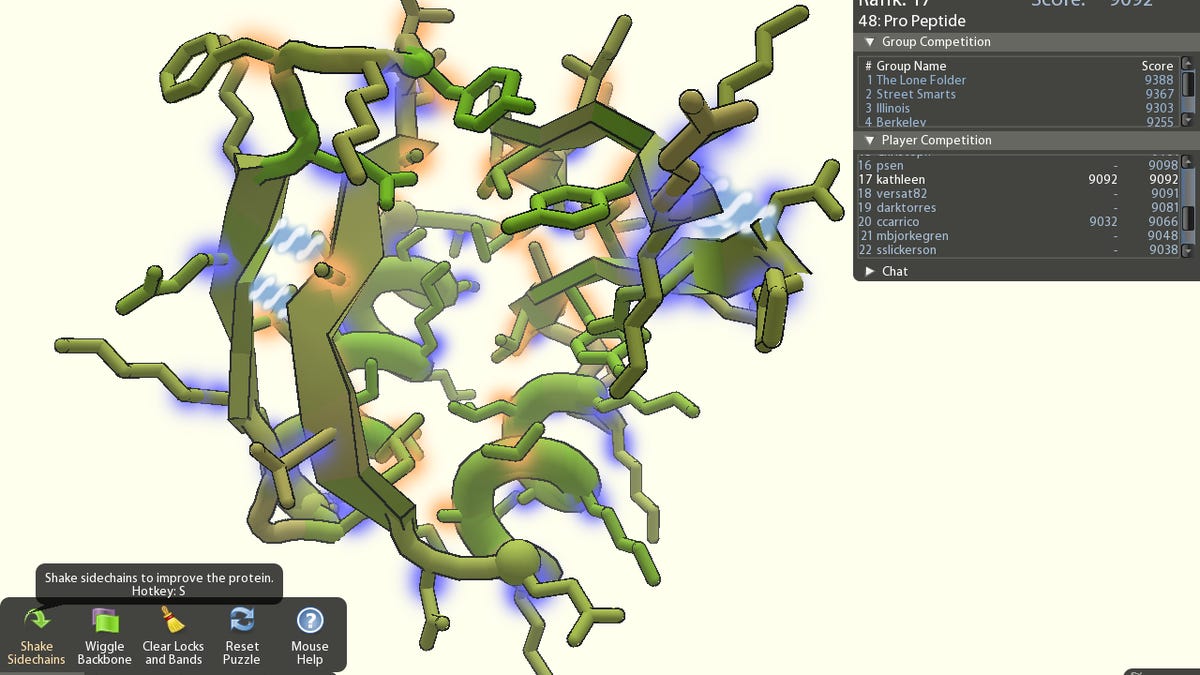Crowdsourcing gamers best computers on protein folding
Citizen scientists using a 3D jigsaw puzzle video game are helping decode how proteins work to advance research drug treatments and potentially renewable fuels and chemicals.

If you have a good mind for puzzles and are a whiz at video games, your may have a calling in science.
Researchers at the University of Washington have devised a video game that lets citizen scientists take a stab at decoding the shape of proteins. The graphical game called Foldit challenges players to predict protein structures and ultimately design their own using a three-dimensional construction tool.
"You could imagine where you come home in the evening and you can either stay up all night playing Halo or be designing an HIV vaccine with people around the world. Which would you be happier saying you did when you went to work in the morning?" the game's creator and University of Washington biochemist David Baker told Nature. Players don't need a background in science or biology.
Baker's group this week published a paper (click for PDF) in Nature Biotechnology that found that humans' puzzle-solving skills are actually better than computers in designing complex proteins. "Human creativity can extend beyond the macroscopic challenges encountered in everyday life to molecular-scale design problems," the paper concludes.
Proteins are involved in many types of reactions inside the human body, such as breaking down food or sending signals from the brain. Better understanding and controlling the shape of proteins can accelerate drug research for HIV, Alzheimer's, or cancer. Engineering proteins that catalyze a chemical process, called enzymes, can also speed up production of renewable fuels and chemicals, too.
Proteins are structured around a chain of amino acids with side chains hanging off that backbone. The challenge of the game comes from the complexity of the molecular structure of proteins, which can be made up of 1,000 amino acids in humans. The chains need to be curled up, or "folded," into a three-dimensional shape that minimizes the internal stresses on the structure.
Foldit players use the three-dimensional design software in an effort to fold the proteins in an optimal shape which uses the least amount of energy for a given set of amino acid sequences. For example, some amino acids need to be placed in the middle with others around the edges. "The number of different ways even a small protein can fold is astronomical because there are so many degrees of freedom," according to the Foldit FAQ.
The software gives clues to citizen scientists, such as showing that a high-energy area, caused by strain on the shape, needs changing. The Foldit game gives specific challenges to players and ranks them according to their accomplishments to encourage competition.
The work done on these 3D jigsaw puzzles will be used not just to better understand how proteins function but also to improve algorithms for computer-designed enzymes, according to the University of Washington's paper.

